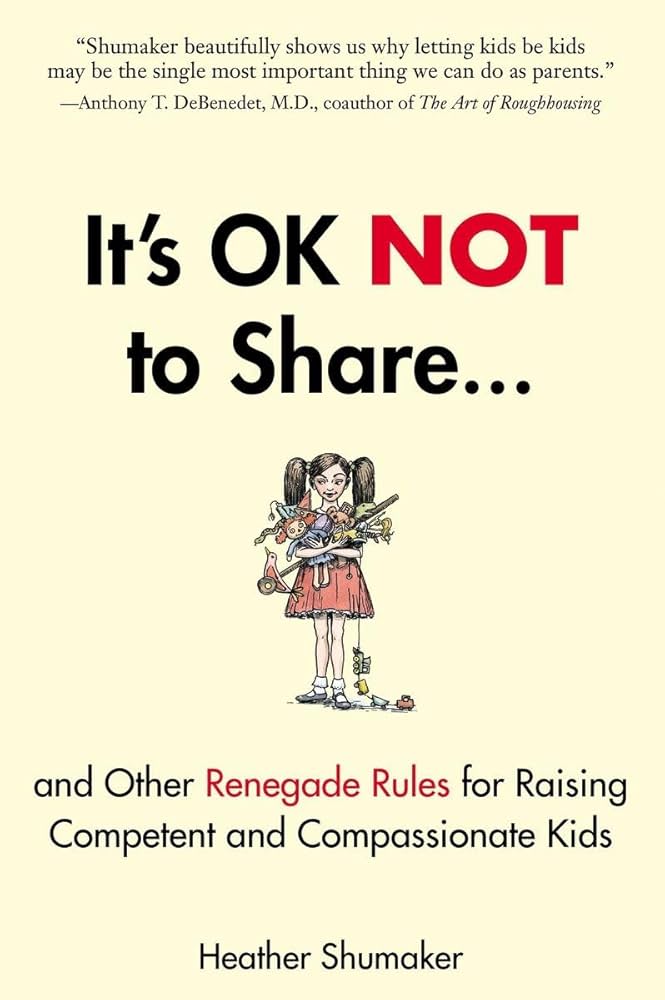
It's OK Not to Share by Heather Shumaker
Heather Shumaker’s book, It’s OK Not to Share, challenges traditional parenting norms by presenting a new approach to child-rearing that prioritizes respect and understanding over conventional rules. This article explores the key concepts of Shumaker’s philosophy and offers practical insights for parents looking to adopt her methods.
Introduction to Heather Shumaker’s Philosophy
Shumaker's book is grounded in the idea that children learn best through authentic experiences rather than rigid rules. Her approach encourages parents to reconsider common practices and to foster environments where children can develop autonomously.
Key Concepts of the Book
- No Sharing Rule: Shumaker argues that forced sharing can create resentment. Instead, children should be allowed to decide when they are ready to share.
- Respect for Feelings: Validating a child’s emotions is crucial for their development. Parents are encouraged to acknowledge and respect their child's feelings.
- Risk-Taking: Allowing children to take risks helps them develop confidence and problem-solving skills.
The Importance of Play
Shumaker emphasizes that play is an essential part of childhood development. Through play, children learn to navigate social dynamics and develop creativity.
| Traditional Approach | Shumaker’s Approach |
|---|---|
| Forced Sharing | Voluntary Sharing |
| Structured Play | Free Play |
| Parent-Led Decisions | Child-Led Decisions |
Real-Life Applications
Parents who have applied Shumaker’s principles report significant improvements in their child’s behavior and emotional well-being. By allowing children to make their own decisions, parents can foster a sense of responsibility and self-confidence in their children.
Conclusion
Heather Shumaker's It’s OK Not to Share provides a refreshing perspective on parenting. By focusing on autonomy and respect, parents can create nurturing environments that support their child's growth and development.
For more insights and parenting tips, visit Read Review Talk and check out our blog at Read Review Talk Blog.



